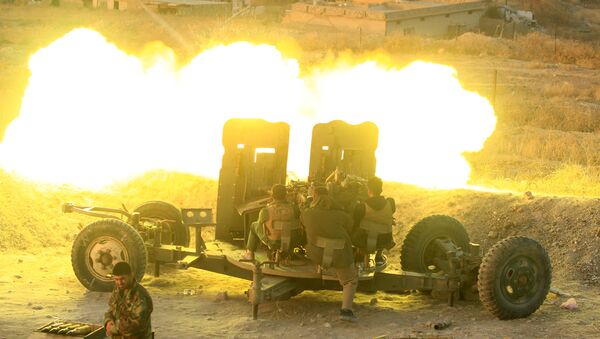“Tukey and the US have conflicting interests in Syria and Iraq and these differences are particularly obvious now. Unlike the Americans, who never care about anyone else, Turkey wants to prevent the division of these two couhtries. To reach their goals the Americans are very indiscriminate in their choice of allies, never thinking about the consequences,” Celalettin Yavuz said.
“On the other hand, the US would hate to see Turkey expanding its footprint in northern Iraq where it is fighting PKK militants who are staging terrorist attacks in Turkey. The Americans see the PKK as their major ally againt Daesh, but I don’t think that using one terrorist group to destroy another is the right way to go. Moreover, this would help legitimize the PKK, give ity a legal status internationally and give it a chance to make demands. Turkey is against this,” he emphasized.
He added that once Mosul has been liberated, Daesh terrorists would move to other countries, including Turkey, which is already home to over 300,000 Iraqi refugees. In addition to millions of Syrian and other refugees already there, this would create more socioeconomic problems for Ankara.
“If the situation in Mosul spills over to other parts of the country this could igtnite a religious war between Sunnis and Shiites, which is something Turkey wants to avoid,” Professor Yavuz.
“Since the Americans invaded Iraq in 2003 the number of ethnic and religious conflicts there has gone up and this is one of the reasons why Daesh got so big so fast. Even if we get rid of Daesh, but the Sunnis keep seeing their rights violated, other al-Qaeda spinoffs will come along and this is something the Americans should keep in mind,” Celalettin Yavuz warned.
On Monday, Iraqi Prime Minister Haider Abadi announced the start of the military operation to retake Mosul from Daesh militants.
According to local media, about 30,000 Iraqi soldiers and 4,000 Kurdish Peshmerga fighters are taking part in the operation, backed by air strikes carried out by the US-led international coalition.


